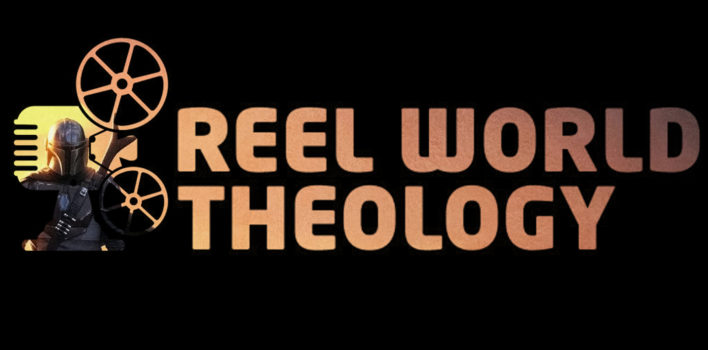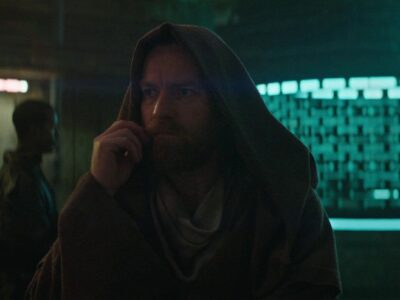The Mandalorian Chapters 7 and 8: Failure’s Favor
It was almost impossible to review and comment on “The Reckoning” without seeing “The Redemption.” Chapters 7 and 8 are the show’s first true two-part episode; they’re truly and completely entwined and inextricable from one another, and with Deborah Chow and Taika Waititi directing, they are barnburners. Suspenseful and action-packed, with top-notch music and acting as always, the dual season finale certainly earned its keep and got me excited for what’s to come next season. And it’s not just because I called the inevitable unraveling of Mando’s life all the way back at Episode 4.
In a lot of ways, the 2-part season finale was like a microcosm of the show as a whole; wide-ranging, full of colorful characters, snappy, and a real crowd-pleaser. This show has been a thrill ride with enough fanservice to sate even the most crochety old fan, and it’s no surprise that they greenlit the second season before the first had even taken its boots off.
But with as much of a success as season 1 of The Mandalorian was, it’s easy to forget that the final story—in fact, maybe the entire season—is steeped in failure.
Note: if you haven’t seen the entire season yet, spoiler warning as the following commentary talks about everything that’s been released thus far; but particularly chapters 7 and 8.
A Season of Failure
The theme of failure in the season finale two-parter is foreshadowed in Kuiil’s explanation of IG-11’s life and activities after being rebuilt by the Ugnaught. His training is full of failure, and we get to see him deal with that failure amid Kuiil’s patience and affirmation. He even begins to develop a personality from that failure.
But it doesn’t end there. The whole crew’s failure to destroy or push back the dragon creatures at the campsite; Kuiil’s failure to reach the Razor Crest before the scout troopers overtook him; and Mando’s “felt failure” to protect the other Mandalorians.
We saw it in earlier episodes, too: Mando’s failure to defeat the mudhorn, Mando’s failure to do the right thing with the child from the beginning, Mando’s failure to recognize when he’s being played—and then his failure to recognize it again.
The core of good narrative storytelling is conflict, and what greater conflict is there than the internal battle that rages within someone who has failed? But there’s more to these stories than that. The key to the success of these stories is that the failures, though painful, keep Mando growing. He’s a more complete person at the end of the season than he was at the beginning because of his failure.
Failure’s Favor
Pass on what you have learned. Strength. Mastery. But weakness, folly, failure also. Yes, failure most of all. The greatest teacher, failure is.
—Yoda, The Last Jedi
It is a foundling. By creed, it is in your care. […] You are a clan of two.
—The Armorer
I will have served my purpose.
—IG-11
More than just a teacher about what to do and what not to do, failure is a tool of growth. We learn that we are fallible. We discover who we can trust and who we cannot, even finding a new group to be a part of in failure. We find new solutions and new outlets for ourselves. We learn how we can serve our purpose. And, yes, we learn the right answer from the wrong answer.
In fact, Mando is made complete in failure: his perceived failure, his actual failure, and even the failure of others—Baby “The Child” Yoda becomes a part of his clan because Mando failed at the mudhorn, and his jet pack comes to him from the body of a dead, failed Mandalorian. And even though it might seem like failure to explode, it’s actually a success; a victory, even, when IG-11 shows his growth by sacrificing himself to secure Mando, Dune, and Karga’s escape with the child.
It’s easy to despise failure; it doesn’t feel good. Especially when it feels like a sin or a weakness or a flaw in us, in our hearts. But we serve a God who turns death to life and hatred to love; turning failure to success is child’s play for a God who makes strength out of weakness and wisdom of folly. He turned the death of His son from a dramatic failure of literally historical proportions into the means by which he would save the world; to bring us into His clan, put His signet on us, and give us a purpose we can accomplish for Him.
And, like with Mando, our lowest moment can be His tool to launch us to the heavens.
— — —
Thank you for joining us for this season of The Mandalorian! We had a great time looking at the stories and the arcs and characters with you, and we’re looking forward to it again next year.







